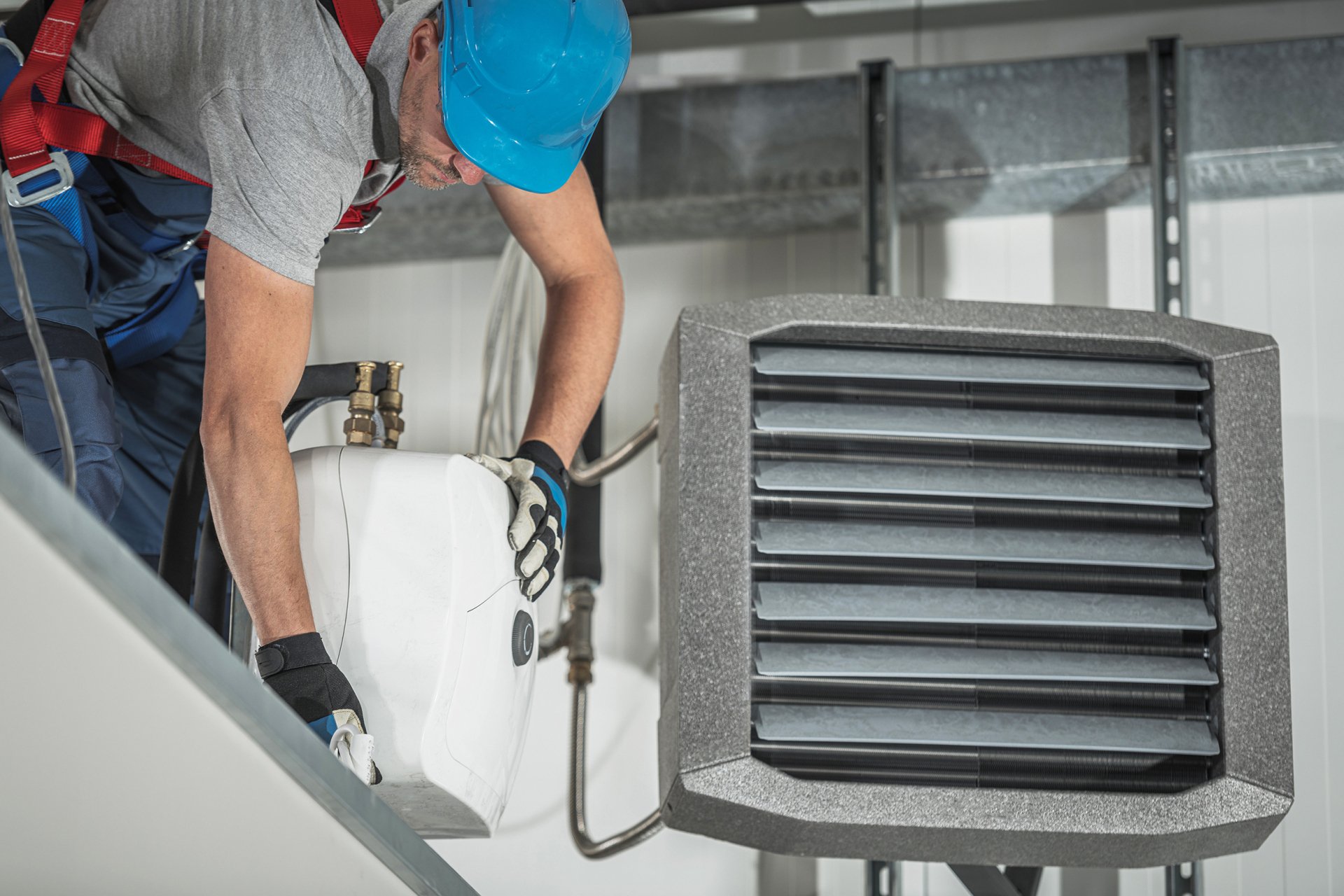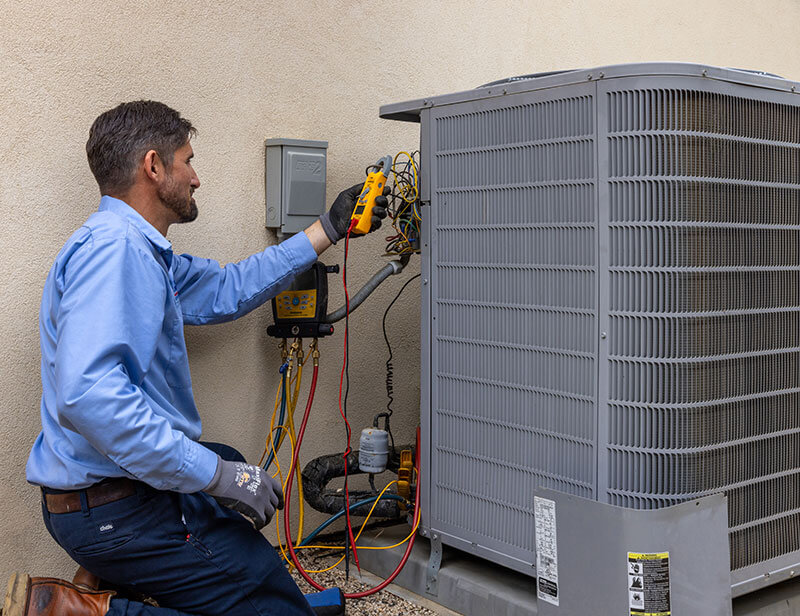Warning Signs It's Time for a furnace replacement
Wiki Article
Choosing Between a Warm Pump and Furnace: Key Factors To Consider for Your A/c Requirements
When assessing heating alternatives for cooling and heating requires, the decision in between a heatpump and a furnace can be intricate. Each system uses distinct benefits tailored to specific environments and energy efficiency objectives. Comprehending these differences is crucial for making an educated choice. Secret elements such as setup costs and ecological impact better complicate the option process. Which choice truly lines up with one's comfort and sustainability choices? The following areas will check out these considerations thoroughly.Understanding Warmth Pumps: How They Function and Their Benefits
While many homeowners consider numerous home heating alternatives, comprehending just how heatpump feature and their advantages can substantially influence their choice. Heat pumps run by moving warm as opposed to generating it. In the winter months, they draw out warmth from the outside air or ground and move it indoors, while in the summer season, they reverse this process, cooling the home by eliminating heat outside. This double functionality makes them flexible for year-round environment control.One of the primary benefits of warm pumps is their power efficiency. They use significantly less power compared to conventional heating unit, possibly resulting in lower energy costs (heat pump installation ooltewah tn). In addition, heatpump have a smaller carbon impact, making them an environmentally pleasant selection. They also require less maintenance than traditional systems, adding to long-lasting cost savings. On the whole, understanding the auto mechanics and benefits of warm pumps can aid homeowners make notified decisions concerning their home heating and cooling requirementsDiscovering Heaters: Kinds, Procedure, and Benefits
Heating systems come in various types, consisting of gas, electric, and oil designs, each with distinct operational mechanisms. Understanding these differences is important, as they affect effectiveness and heating performance. Additionally, heaters supply many advantages, such as constant heat result and dependability in cooler climates.Sorts of Heaters
Heating unit can vary considerably in design and procedure, with heating systems being a popular selection among home owners. There are a number of sorts of furnaces, each using various gas resources and modern technologies. Gas heaters are typical, leveraging gas to generate warm efficiently. Electric heaters, on the other hand, use electrical resistance to produce heat, usually favored for their simple setup. Oil furnaces, while much less common, are reliable in areas with minimal gas accessibility (heat pump replacement ooltewah tn). Furthermore, condensing heaters make best use of power performance by recycling and capturing exhaust gases. Each kind runs through a system of warm exchangers and ductwork to disperse warm air throughout a home. Understanding the distinctions between these heating system types is vital for educated heating and cooling decisionsAdvantages of Furnaces
For house owners looking for reputable heat during chilly months, the benefits of heaters are significant. Furnaces supply consistent heating, ensuring even temperatures throughout the home. They are specifically reliable in severe cold, frequently exceeding heatpump in freezing conditions. Numerous kinds, consisting of gas, electrical, and oil heaters, use adaptability to fulfill varied needs and preferences.Furnaces also tend to have reduced initial installation costs contrasted to heat pumps, making them a more available alternative for several. Their durable layout adds to a much longer life expectancy, with numerous units lasting over 15 years with proper maintenance. Additionally, modern furnaces are typically furnished with sophisticated innovation for improved efficiency, which can lead to decreased energy bills. On the whole, furnaces continue to be a reputable option for reliable home heating.
Power Efficiency: Contrasting Heat Pumps and Furnaces
When comparing power efficiency in between heatpump and heaters, the Seasonal Power Performance Ratio (SEER) plays a crucial duty in establishing efficiency. In addition, an operational cost analysis exposes the lasting financial implications of each system. Comprehending these variables can guide house owners in making educated decisions about their heating options.Seasonal Power Performance Proportion
Power performance plays an essential role in the decision-making process between heatpump and heating systems, especially when taking into consideration the Seasonal Power Effectiveness Proportion (SEER) This metric procedures the cooling effectiveness of heatpump over an entire cooling season, offering a standardized way to evaluate efficiency. Greater SEER scores indicate greater power performance, converting to reduced power intake and lowered utility costs. In contrast, heating systems are commonly analyzed making use of the Annual Fuel Utilization Performance (AFUE) ranking, which shows heating performance. When contrasting these two systems, property owners ought to prioritize SEER rankings for warm pumps, as they directly influence general energy financial savings and environmental sustainability. A complete understanding of SEER can significantly influence the lasting contentment and cost-effectiveness of the selected heating and cooling solution.Functional Cost Evaluation
Comprehending the operational prices connected with heatpump and heaters is crucial for homeowners reviewing their choices. find out here Heatpump normally provide greater energy performance, converting electrical power into warmth with minimal waste. This causes lower monthly energy bills, specifically in moderate environments. On the other hand, conventional heaters, especially gas versions, may have reduced upfront expenses yet can incur higher operational expenditures in time as a result of fuel costs and performance ratings.Moreover, heatpump can work as both home heating and cooling systems, potentially minimizing the demand for separate a/c devices. While initial financial investments for warmth pumps may be higher, their long-lasting cost savings in power performance can make them a more economical selection for several households. Cautious analysis of regional power prices is important to identify the very best alternative.Installment Prices: What to Anticipate for Each Furnace
Installation costs for heating unit can differ significantly in between warm pumps and furnaces, affecting house owners' choices. Heat pumps usually have greater ahead of time installment prices, generally ranging from $3,500 to $8,000, depending upon the system size and intricacy of installment. This consists of the outdoor system, interior handling system, and required ductwork adjustments. Alternatively, heaters often tend to have reduced preliminary expenses, averaging between $2,500 and $6,000, which can be appealing for budget-conscious homeowners. Nevertheless, installment costs can raise if considerable ductwork is required.Moreover, the selection of gas type for furnaces-- gas, gas, or electric-- can also influence setup costs. While heatpump provide power effectiveness, their initial investment may discourage some customers. Inevitably, assessing setup expenses alongside lasting cost savings and efficiency will certainly assist homeowners in making notified decisions regarding their furnace.Environment Factors To Consider: Which System Does Much Better in Your Area
Just how do climate problems affect the efficiency of heater? The performance of warm pumps and furnaces can vary greatly depending upon the neighborhood climate. In modest environments, heat pumps succeed by efficiently moving warmth from the outside air, making them an energy-saving choice. Nonetheless, their efficiency reduces in extremely chilly temperature levels, where they may have a hard time to remove sufficient warm. Alternatively, heating systems, specifically gas models, offer dependable navigate to this site and constant heat no matter outside problems, making them better in cooler regions.In locations that experience milder winters, warm pumps can operate efficiently year-round, supplying both heating & cooling. On the other hand, areas with rough winters commonly profit from the effectiveness of heaters. Inevitably, recognizing the neighborhood environment is crucial when deciding in between a warmth pump and a heater, as it straight impacts their operational efficiency and overall efficiency.Maintenance Needs: Long-Term Look After Heat Pumps vs. Furnaces
While both heatpump and heating systems require normal maintenance to assure peak performance, their certain demands and treatment routines vary significantly. Heating systems typically need much less frequent interest, with yearly examinations being adequate to look for gas leakages, tidy filters, and evaluate total performance. Their simpler style frequently enables simple repairs.In comparison, heat pumps demand biannual maintenance as a result of their double duty in cooling and heating. This consists of cleaning coils, examining refrigerant degrees, and ensuring that both the indoor and exterior devices work at their ideal. Additionally, warmth pump maintenance commonly involves more detailed elements, making specialist maintenance essential.Neglecting maintenance can cause lessened effectiveness and raised energy expenses for both systems. Inevitably, property owners must consider these long-lasting care demands when choosing in between a warmth pump and a heating system, as proactive upkeep can expand the life expectancy and efficiency of either system substantially.Ecological Influence: Picking a Lasting Heating Option
The environmental impact of heating unit is a vital analysis for homeowners seeking sustainable options. Heat pumps are generally much more energy-efficient than standard heating systems, as they move warm instead of produce it, considerably minimizing carbon discharges. By using sustainable energy sources, such as geothermal or air-source warmth pumps, home owners can better decrease their eco-friendly footprint.On the various other hand, gas furnaces produce greenhouse gases and contribute to air contamination, though they usually supply higher heat result. Developments in innovation redirected here have actually led to the growth of high-efficiency heating systems that reduce emissions.Ultimately, picking a heating system entails evaluating efficiency versus environmental influence. Property owners are encouraged to assess local power sources and rewards for eco-friendly systems, making sure a choice that lines up with both individual comfort and ecological responsibility. The choice influences not only prompt comfort however also long-lasting sustainability and ecological health.Regularly Asked Questions
For How Long Do Warmth Pumps and Furnaces Normally Last?
The lifespan of heatpump typically ranges from 15 to two decades, while furnaces can last between 15 to three decades. Regular maintenance substantially affects their durability and performance in providing heating remedies.Can I Utilize a Heatpump in Exceptionally Cold Climates?
Heat pumps can run in extremely chilly climates, however their performance reduces as temperature levels decrease. In such problems, supplementary heating sources may be essential to maintain comfy indoor temperatures and ensure peak performance.
What Is the Sound Level of Warmth Pumps Versus Furnaces?
The sound levels of heatpump and heating systems vary substantially. Normally, heatpump run more silently than conventional heaters, making them better for those conscious appear, while heating systems might create louder functional noises throughout heating cycles.
Are Warmth Pumps Suitable for Both Heating and Air conditioning?
Heat pumps are undoubtedly suitable for both heating & cooling (heat pump installation ooltewah tn). They work by transferring warmth, supplying effective temperature control year-round, making them a functional selection for house owners looking for an all-in-one HVAC optionWhat Size Heating System Do I Required for My Home?
Establishing the suitable dimension heating unit for a home requires examining factors such as square footage, insulation top quality, regional environment, and the home's layout. Consulting an expert can assure an accurate evaluation and excellent comfort. Warm pumps typically provide greater power performance, converting electric energy into warm with marginal waste. In moderate climates, warm pumps stand out by successfully moving warmth from the outside air, making them an energy-saving option. On the other hand, heating systems, specifically gas versions, give constant and trusted warmth no matter of exterior problems, making them better in cooler regions.In locations that experience milder winters months, warmth pumps can run properly year-round, giving both home heating and air conditioning. Heat pumps are typically extra energy-efficient than traditional heating systems, as they move warmth instead than produce it, considerably minimizing carbon discharges. By using renewable energy sources, such as geothermal or air-source warmth pumps, home owners can additionally decrease their eco-friendly footprint.On the other hand, natural gas furnaces emit greenhouse gases and add to air contamination, though they commonly offer higher warmth outcome.Report this wiki page